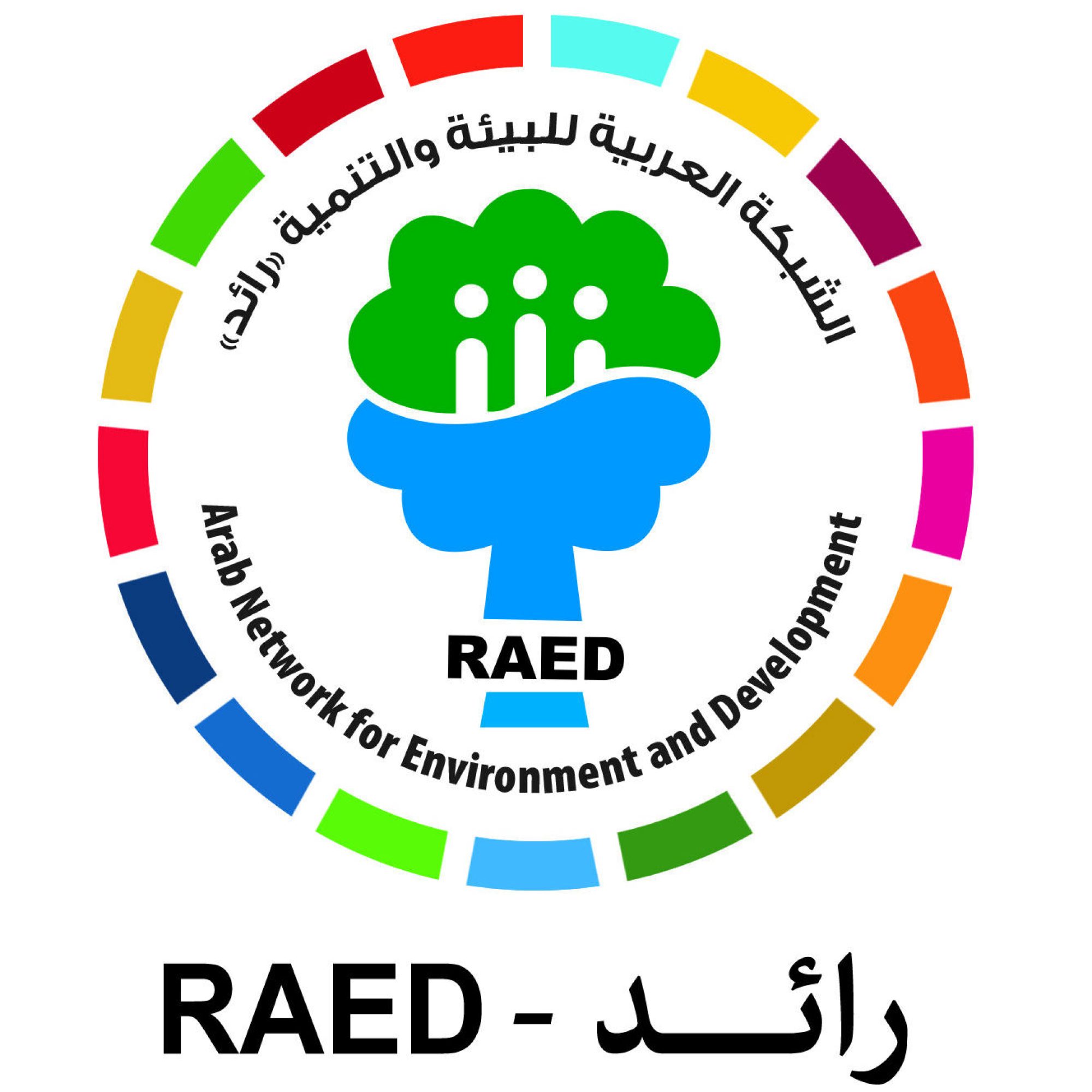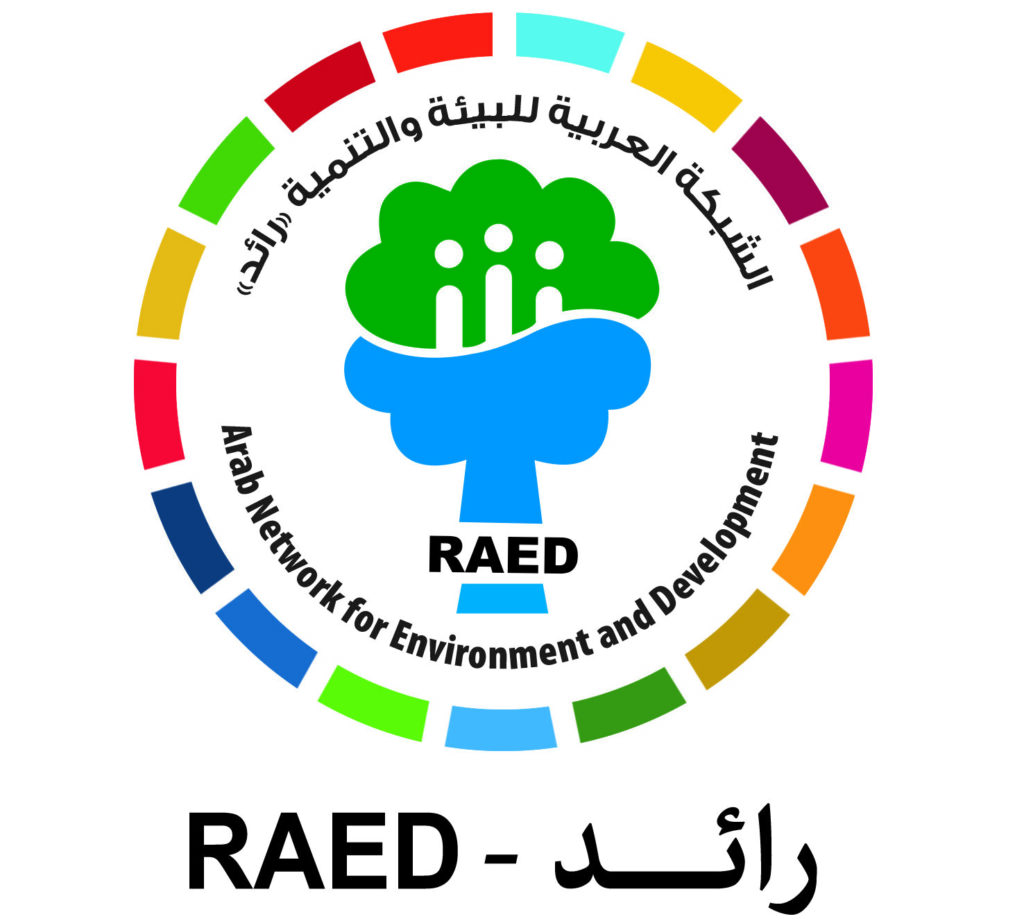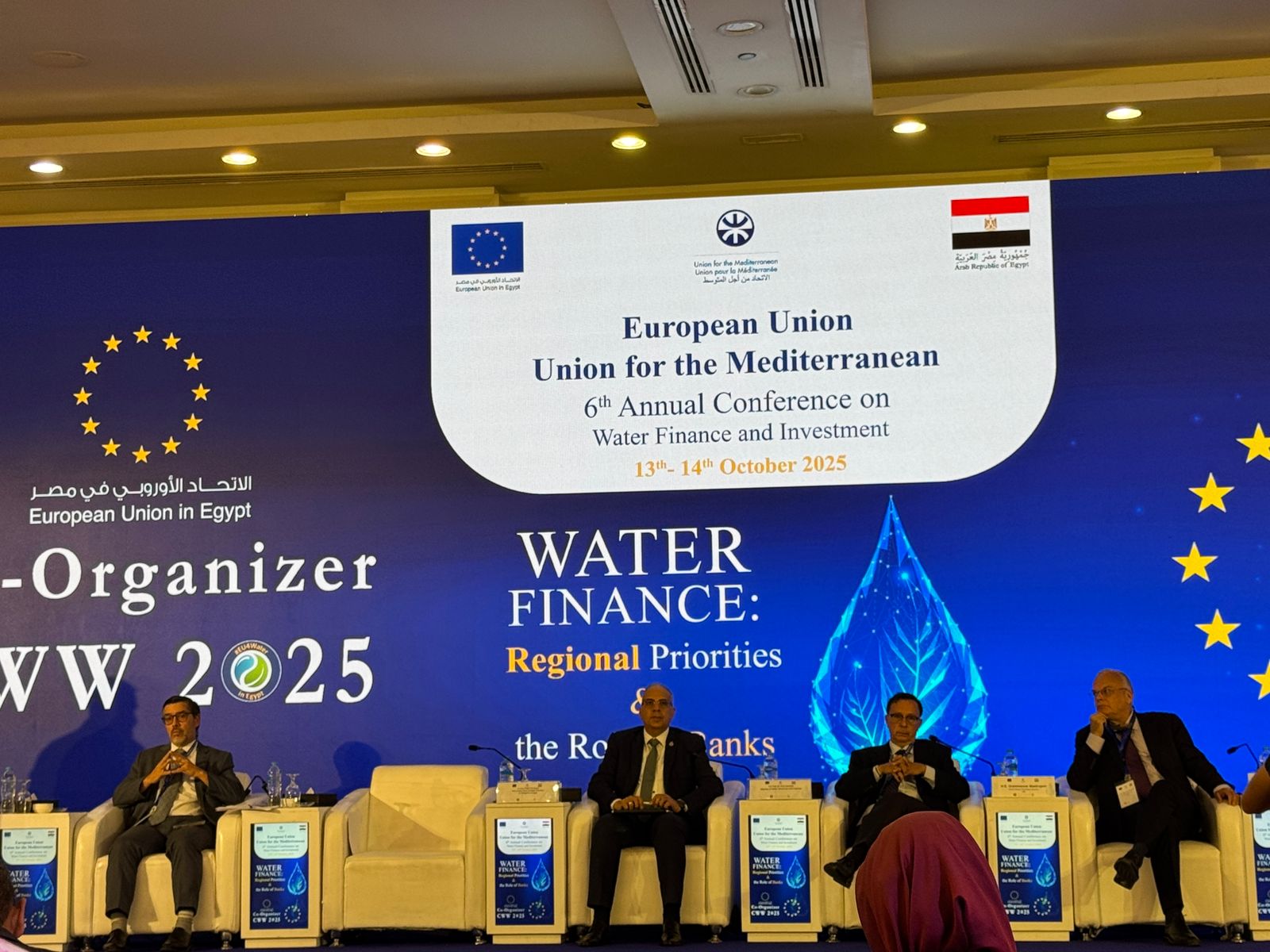Distinguished Participation of RAED in the UfM Annual Conference on “Water Finance” during the Cairo Water Week
The Arab Network Calls for Strengthening Partnerships and Supporting the Role of Civil Society in the Sustainable Management of Water Resources
The Arab Network for Environment and Development (RAED) took part in the 6th Annual Conference of the Union for the Mediterranean (UfM) and the European Union on “Water Finance and Investment,” held in Cairo as part of the 8th Cairo Water Week under the theme “Water Finance: Regional Priorities and the Role of Banks.” The conference gathered ministers, ambassadors, and leading experts in finance, water, and sustainable development from EU countries and the Southern and Eastern Mediterranean region.
The conference is one of the most prominent regional platforms bringing together governments, financial institutions, the private sector, and civil society around a shared goal: strengthening the integration between water policies and financing strategies to achieve the Sustainable Development Goals—particularly Goals 6 and 13 on clean water and climate action. RAED’s participation reflected its ongoing commitment to promoting regional dialogue on water resources management in the context of climate change and to ensuring that the voices of Arab civil society organizations are heard at the international table discussing water and its financing mechanisms.
During the discussions, RAED representatives emphasized that finance is the key to turning visions into action, and that addressing the growing challenge of water scarcity in the Mediterranean region requires comprehensive partnerships among governments, the private sector, civil society, and international financial institutions. RAED urged Arab countries to adopt green financing mechanisms grounded in transparency and climate justice and to direct investments toward projects with tangible environmental and social impact—such as improving irrigation efficiency, wastewater reuse, agricultural and industrial drainage management, and renewable-energy-based desalination. The network also called for mainstreaming the Water–Energy–Food–Ecosystem Nexus approach in the design and implementation of development projects as a pathway to achieving water and food security and enhancing climate resilience.
The conference, inaugurated by H.E. Dr. Hani Sewilam, Minister of Water Resources and Irrigation, was attended by senior officials, including H.E. Ms. Angelina Eichhorst, EU Ambassador to Egypt; Mr. Grammenos Mastrojeni, Deputy Secretary-General of the Union for the Mediterranean; and H.E. Mr. Dag Juhlin-Dannfelt, Ambassador of Sweden to Egypt. Speakers at the opening session commended Egypt’s leading role in advancing the sustainable water finance agenda and in implementing UfM ministerial recommendations, stressing the importance of moving from planning to implementation through mobilizing financial resources for feasible, high-impact projects.
A ministerial session focused on the role of governments and national banks in financing the water sector, underscoring the importance of creating an enabling institutional and legislative environment to attract investments in water and sanitation infrastructure. Discussions also highlighted the need for flexible policies that encourage national and commercial banks to establish green financing portfolios dedicated to water projects. On the first day, representatives from the National Bank of Egypt, Commercial International Bank (CIB), and several Arab financial institutions presented their experiences in supporting water projects. Civil society interventions, including RAED’s, called for expanding public–private partnerships and adopting innovative financing instruments such as green bonds and financial risk-sharing mechanisms.
On the second day, sessions focused on financing for water resilience in the face of climate change. Representatives from the European Commission, the Italian Agency for Development Cooperation, the PRIMA Foundation, and the Interreg-Med Programme shared examples of European policy frameworks that support sustainable water initiatives across the Mediterranean. In these sessions, RAED highlighted that innovative finance goes beyond funding—it encompasses local and institutional capacity building, as well as South–South knowledge and experience exchange. The network called for developing regional platforms for technical cooperation to facilitate access to international funding sources and support developing countries in preparing bankable project proposals.
The conference concluded with a set of key messages shaping the way forward. These included: transitioning from planning to implementation through financing measurable, realistic projects; adopting blended finance models that combine national resources with international support; activating public–private partnerships; building community partnerships to ensure sustainability; and developing innovative financing tools such as green bonds, joint risk funds, and payment-for-ecosystem-services mechanisms. It also underscored the importance of strengthening institutional capacities to ensure efficient project management and long-term sustainability.


